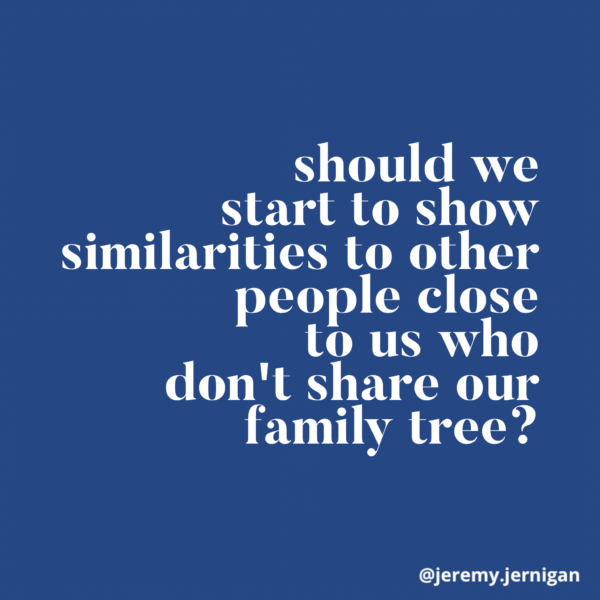Emotional Mimicry
It’s common for a child to resemble one of his or her parents. After all, there’s DNA involved and all that science stuff we learned about in school. But have you ever noticed how couples often look alike? That can’t (or at least should not be) genetics at work.
Michelle and I have heard this feedback throughout our marriage. I’m sure there are a variety of reasons why this happens, but one of them I’ve been reading about recently is called mimicry. We tend to mimic—often subconsciously—the people we are around.
This can lead to permanent changes in our features. If we smile a lot, or scowl a lot, we know those emotions can eventually leave marks etched into our faces. But when we share an emotional reaction with another person on a regular basis, we both can begin to look similar as well. The author Jonah Berger explains it this way:
“Emotional mimicry is particularly prevalent among married couples. Partners spend a lot of time looking at, and listening to, one another. Hearing what happened at work or empathizing over how frustrating it must have been that the store close early. As a result, partners don’t just share space and food, they share emotions. They laugh together, cry together, and even get angry together. We might get laugh lines from telling lots of jokes, but our partners are getting those same lines from listening. Years of making the same expressions, at the same time, leave small, but similar, traces on our faces. Mimicry has made us look similar.”
We might think of a healthy marriage goal as looking as similar as possible to our spouse through years of emotional mimicry. If we truly connect with that person it should cause some physical adaptions we share together. But could we take this idea further?
Emotional mimicry sounds similar to empathy, or at the very least they are connected. When we feel what another person feels we will react similarly to how they react. Could we then see emotional mimicry as a goal for all of the people in our lives? Should we start to show similarities to other people close to us who don’t share our family tree?
Or what about a community of people? Could a community empathize with each other using emotional mimicry so that an entire community of people begins to look similar (despite many different origins and experiences and backgrounds)? I don’t know how far this idea applies, but I’m confident we need more empathy in our lives.
Should we start to show similarities to other people close to us who don't share our family tree? Share on X
If you’re interested, I read about this idea in Jonah Berger’s book called Invisible Influence (see: Amazon link). (Disclaimer: As an Amazon Associate, I may earn commissions from qualifying purchases from Amazon.com).
Do You Want to Read the Bible Without Falling Behind?
Sign up your email and I’ll send you a PDF to download and use my custom-made reading plan system. There’s no way to fall behind on this system and every day will be different no matter how long you use it!
I’ll send future content directly to your inbox AND you can dive into the Bible like never before.




